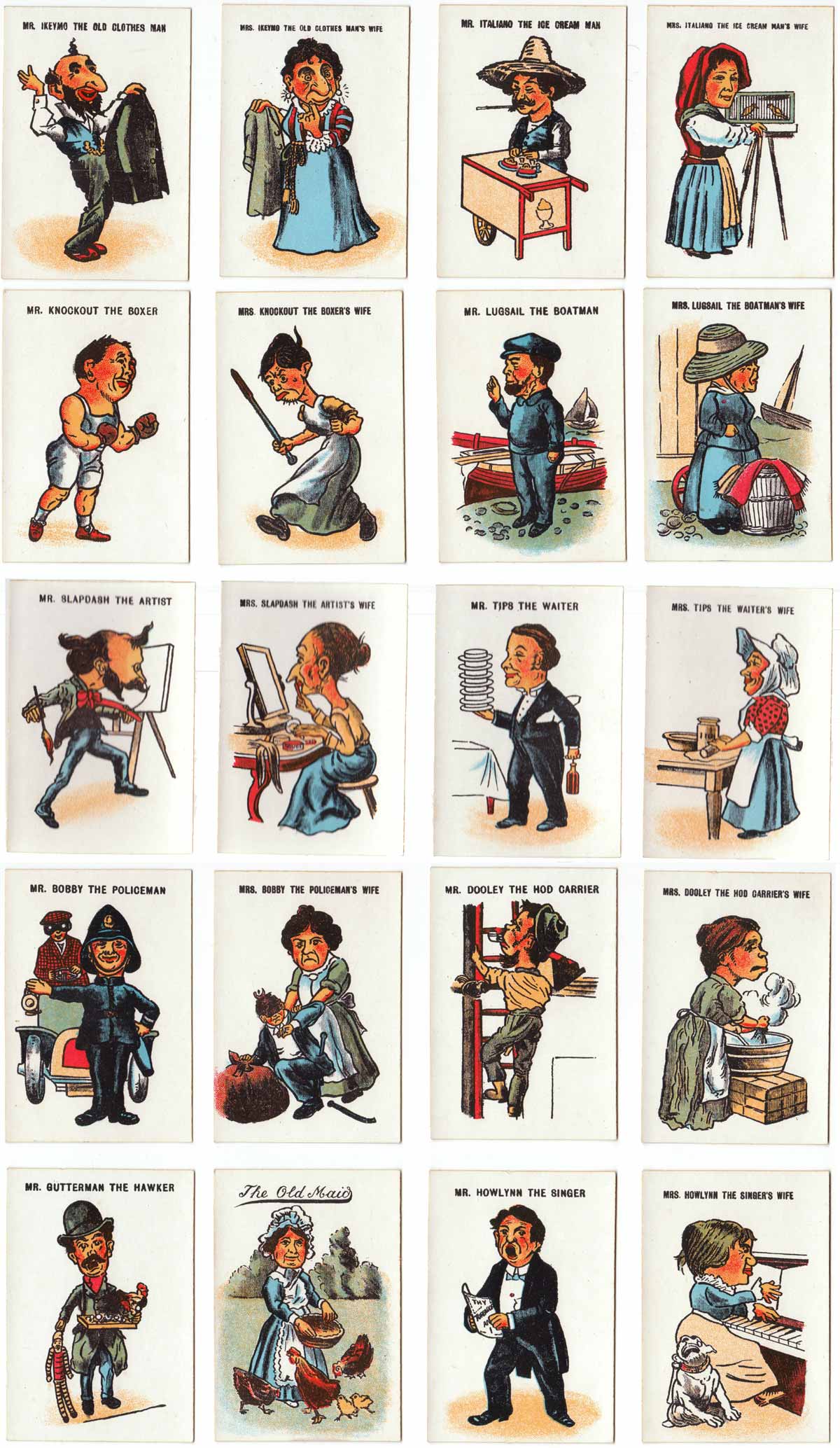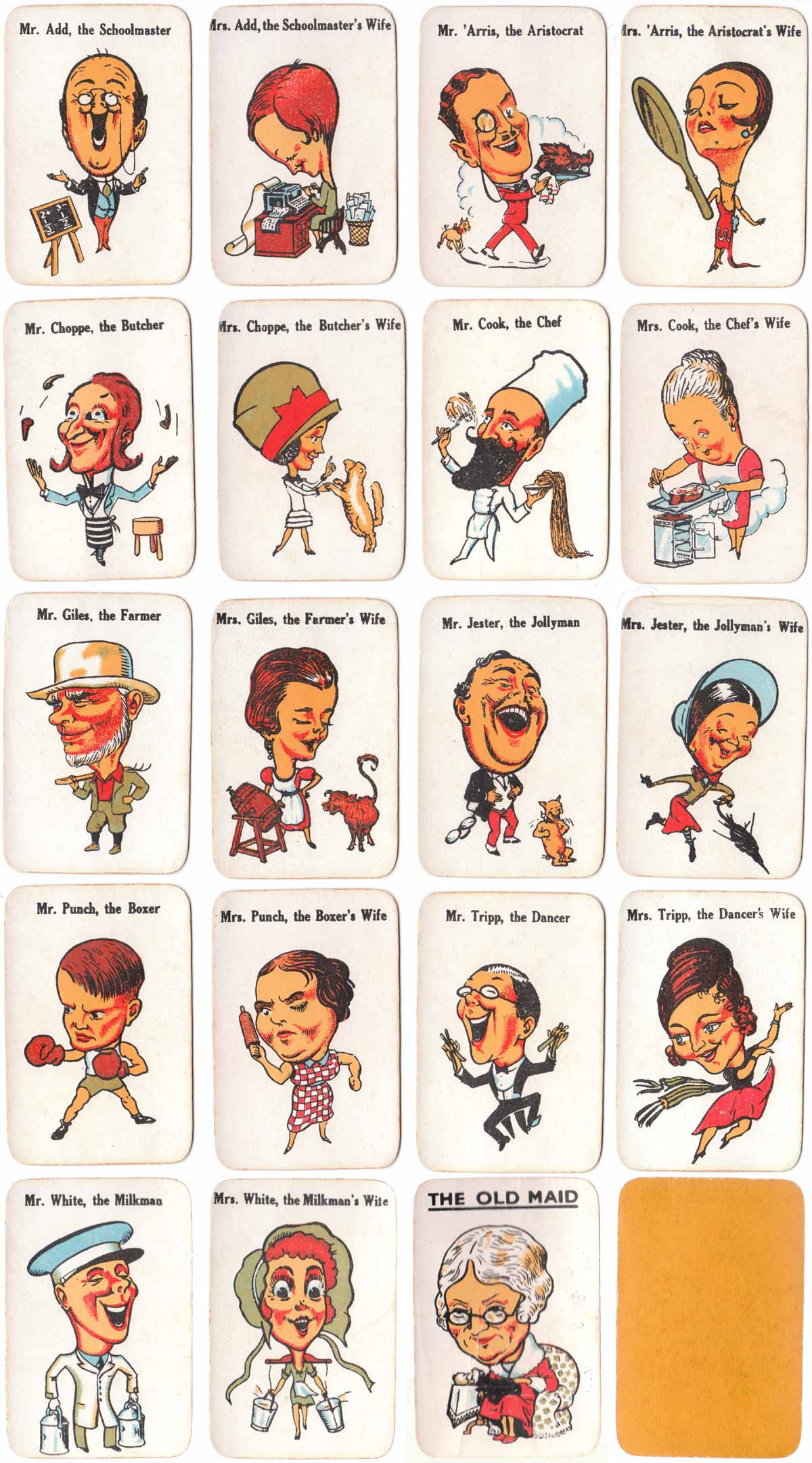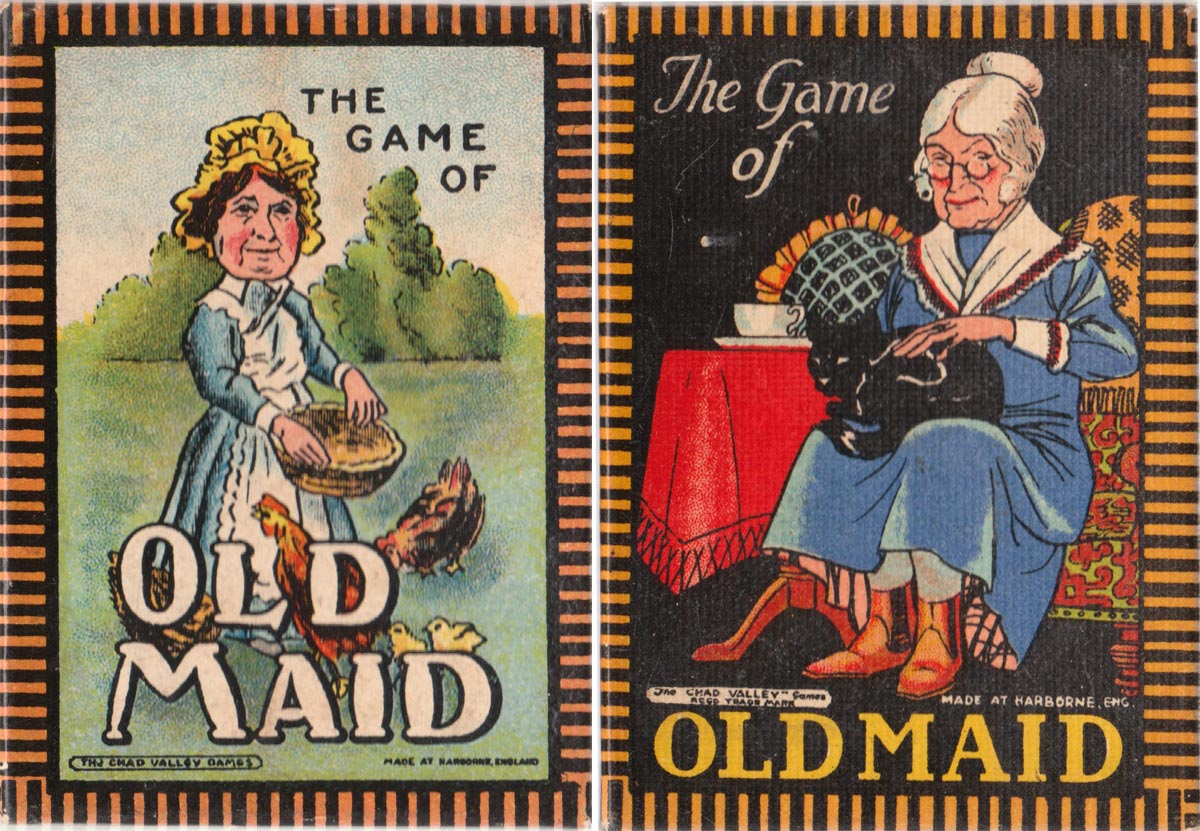The Game of “Old Maid”
Two different editions of “The Game of Old Maid” by the Chad Valley Games Co.
The Game of “Old Maid”

Above: “The Game of Old Maid” by the Chad Valley Games Co., Harborne, England, c.1910.
“Old Maid” is a Victorian family card game probably deriving from an earlier gambling game in which the loser pays for the drinks. It is known in Germany as Schwarzer Peter and in Sweden as Svarte Petter (meaning "Black Peter"). These two “Old Maid” games were published by Chad Valley in c.1910 and 1920s or 30s in similar lid + bottom boxes with black and coloured stripes round the edges. The cards are presented as Mr & Mrs from various crafts, trades and professions, similar to in some Happy Families sets. The object of the game is to form matching pairs of cards but to try to avoid being the player left holding the “Old Maid” card, who is the loser. In these editions the “Old Maids” are depicted as feeding chickens or sitting stroking a black cat. See the Rules→
See also: Chad Valley Old Maid, 1950s→

Above: “The Game of Old Maid” by the Chad Valley Games Co., c.1930s.

By Rex Pitts (1940-2021)
Member since January 30, 2009
Rex's main interest was in card games, because, he said, they were cheap and easy to get hold of in his early days of collecting. He is well known for his extensive knowledge of Pepys games and his book is on the bookshelves of many.
His other interest was non-standard playing cards. He also had collections of sheet music, music CDs, models of London buses, London Transport timetables and maps and other objects that intrigued him.
Rex had a chequered career at school. He was expelled twice, on one occasion for smoking! Despite this he trained as a radio engineer and worked for the BBC in the World Service.
Later he moved into sales and worked for a firm that made all kinds of packaging, a job he enjoyed until his retirement. He became an expert on boxes and would always investigate those that held his cards. He could always recognize a box made for Pepys, which were the same as those of Alf Cooke’s Universal Playing Card Company, who printed the card games. This interest changed into an ability to make and mend boxes, which he did with great dexterity. He loved this kind of handicraft work.
His dexterity of hand and eye soon led to his making card games of his own design. He spent hours and hours carefully cutting them out and colouring them by hand.
Related Articles

Quaterne
A Victorian quartet-style children’s card game by Goodall & Son.

The Molassine Company and its link to Whist and Bridge
A savvy marketing strategy blending Victorian decorative design with Edwardian practicality.

Waddington’s faux books
Waddington’s faux book set containing four packs of playing cards and bridge markers.

Double Dummy Bridge
In the early 20th century several firms began to promote whist or bridge as a game for two.

Ogdens Beauties & Military cigarette cards
Cigarette cards featuring beauties and military uniforms with playing-card insets.

Boddingtons Bitter playing cards
Cool-looking courts advertising Boddingtons Bitter, originally brewed in Manchester.

OXO Faces of the Millennium Dinner
Twentieth-century personalities promoting a millennium dinner at the Oxo Tower in London.

Kids Fun Box playing cards
Colourful cards for children with four non-standard suits connected with the natural world.

Tangle Foot Ale
Badger Brewery Tangle Foot strong ale advertising pack.

Scientific Whist
“Scientific Whist” : standard cards with instructions for play on the faces by Chas Goodall & Son, 1...

Agent Provocateur
Branded lingerie collection in a pack of pin-up playing cards.

Nimbus playing cards
Mike Steer’s weather-themed pack with suits in four colours and backs for cardistry.

Agatha Christie and Playing Cards revisited
Agatha Christie uses card-play as a primary focus of a story, and as a way of creating plots and mot...

The Decadent Deck
Studies in the eroticism of the female body by Inge Clayton.

Historic Shakespeare
“Historic Shakespeare” playing cards featuring Shakespearean characters by Chas Goodall & Son.

Copechat Paramount Sorting System
Preserving the past: a specimen deck showcasing edge-notched cards and their ingenious sorting syste...
Most Popular
Our top articles from the past 28 days


